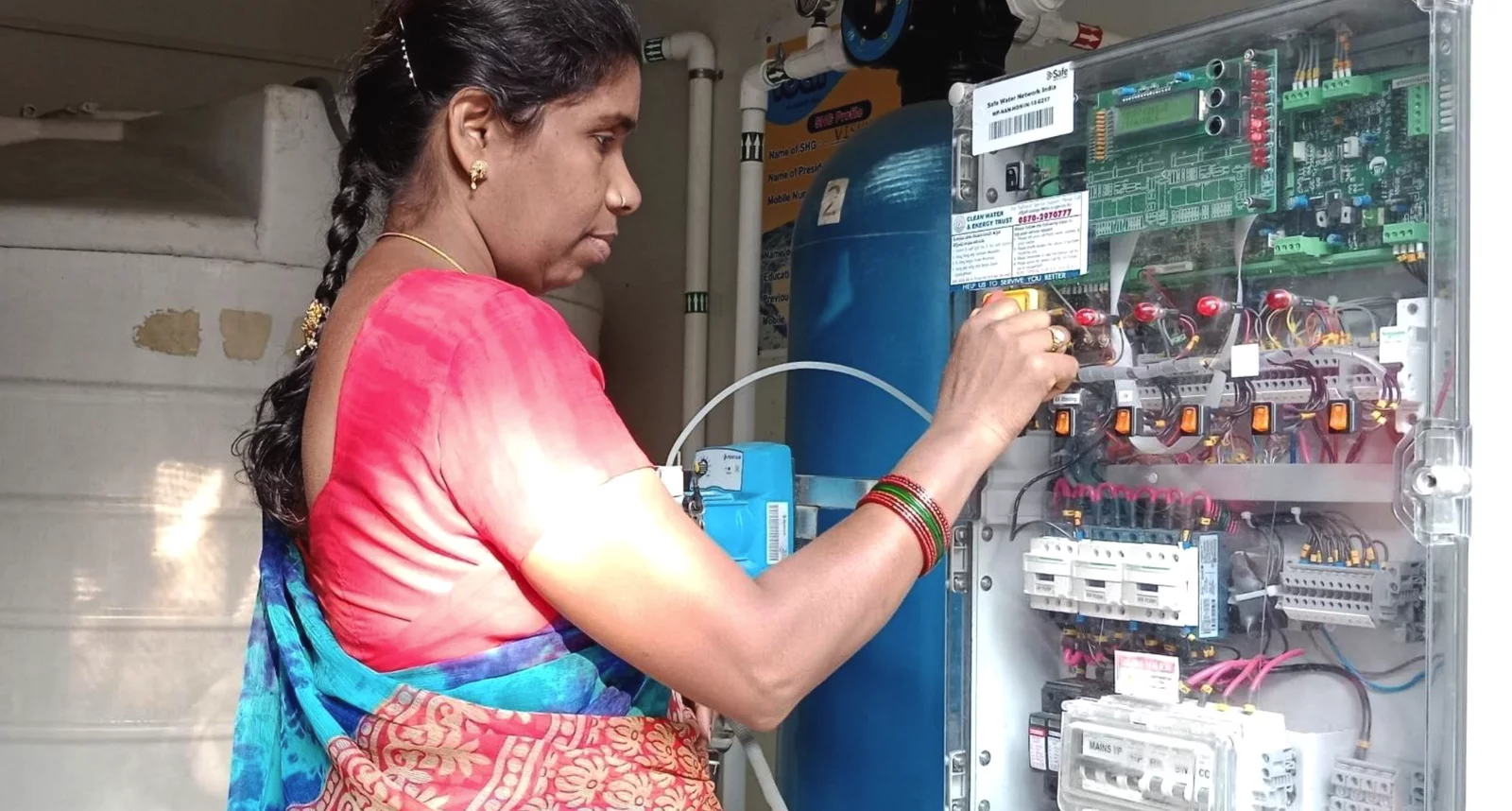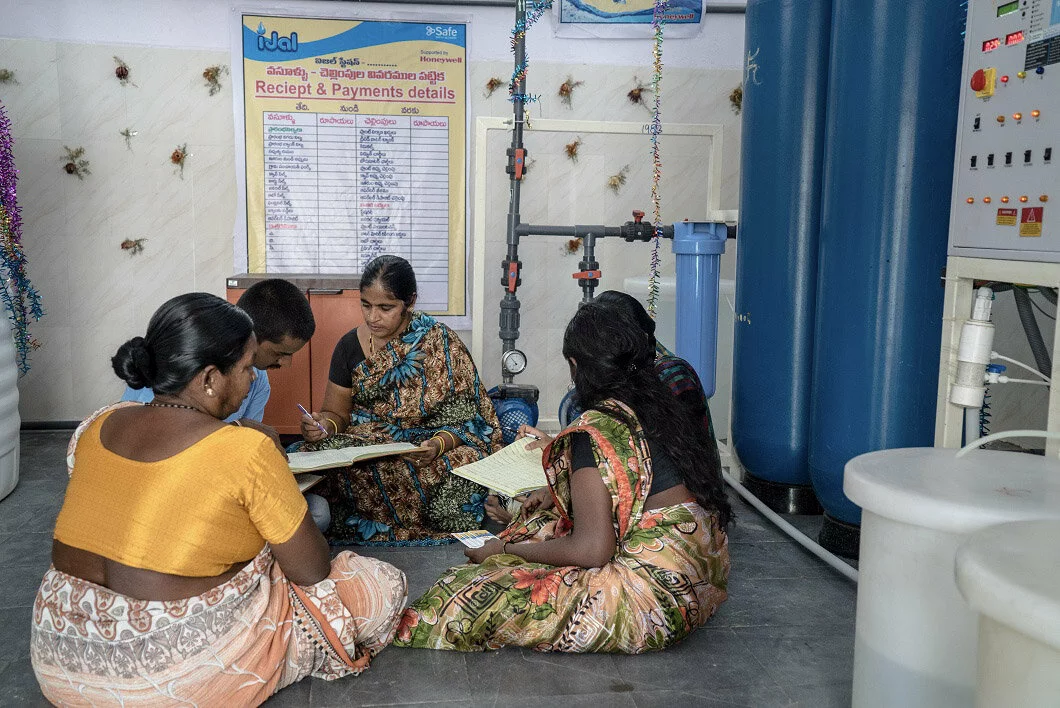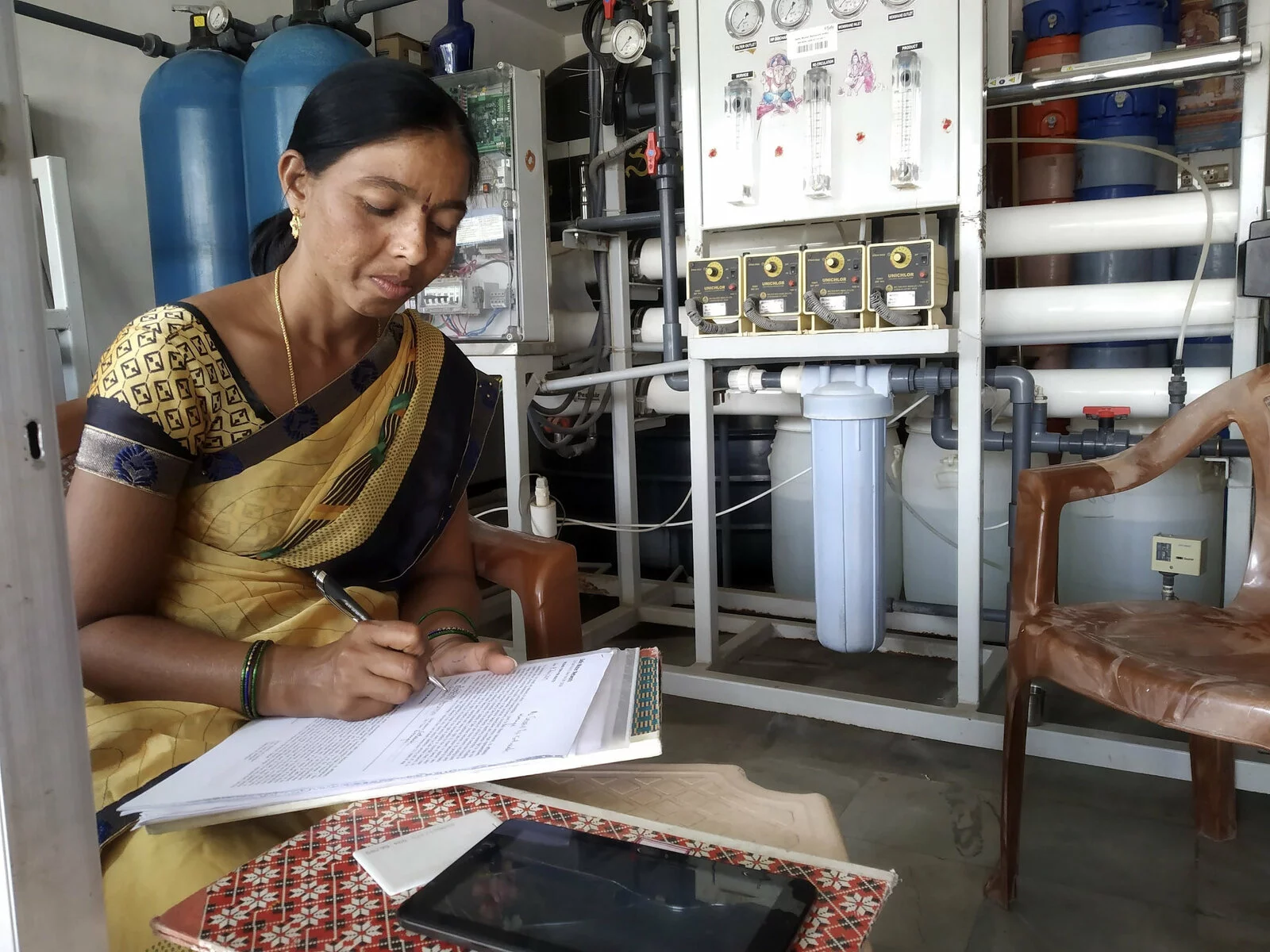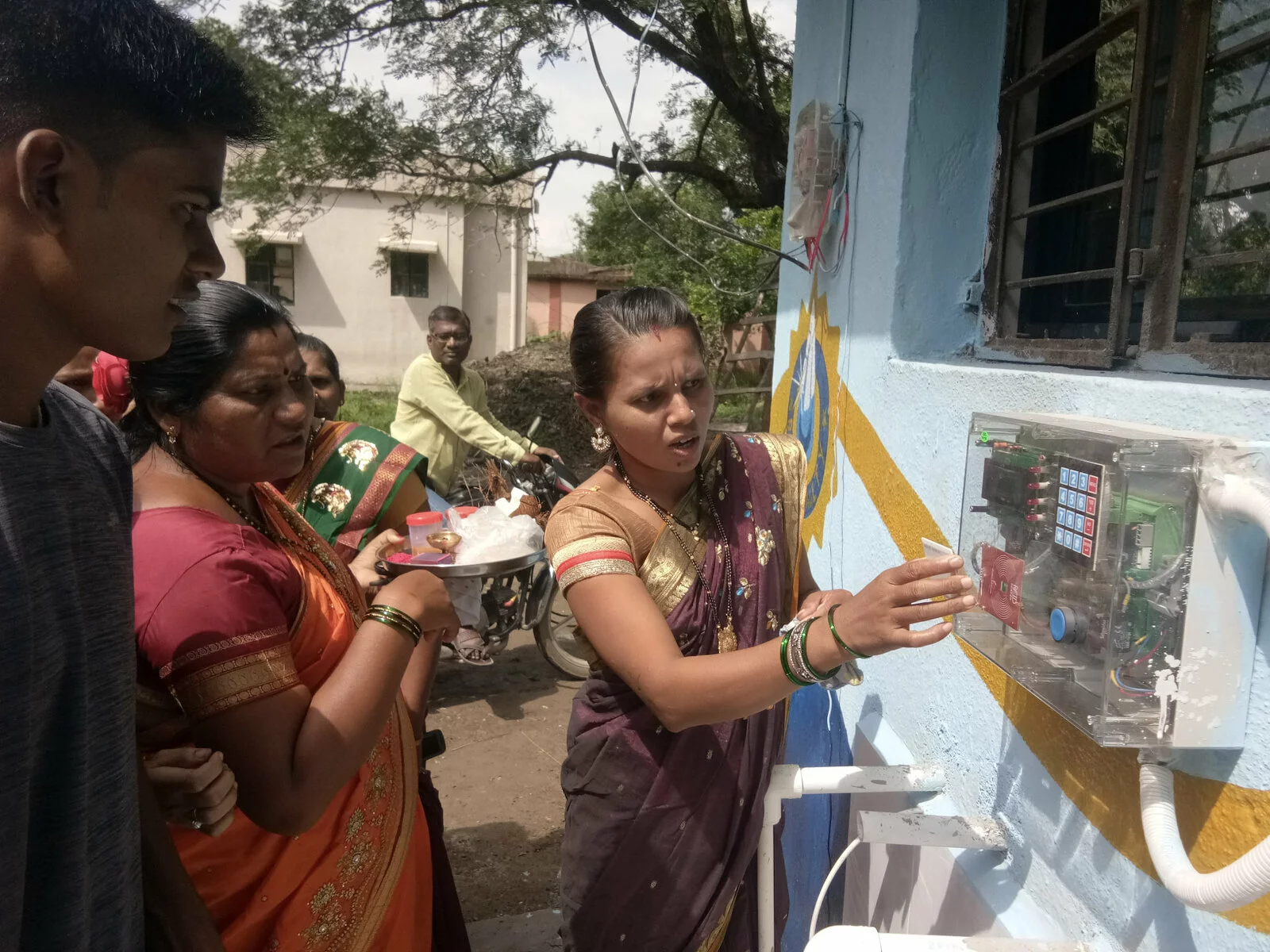Rethinking Gender Equality Through the Lens of Economic Empowerment in Water
By: USAID India, PepsiCo Foundation, Pentair Foundation, Safe Water Network, SEWAH Members
This critically acclaimed report on Gender and Safe Water in India was released in May of 2023. The effort was underwritten by USAID India, PepsiCo Foundation, Pentair Foundation, Safe Water Network, and other SEWAH Members.
According to USAID Acting Mission Director Karen Klimowski, “We believe access to water, sanitation, and hygiene facilities is essential to ensure gender equality and economic progress. We are proud to mobilize and support women’s participation at a local level in the decision-making process to plan, design, construct, and run these water kiosks and community initiatives which are ensuring safe drinking water for all while generating economic opportunities for women.
Upon the report’s release, it generated numerous press articles across India:
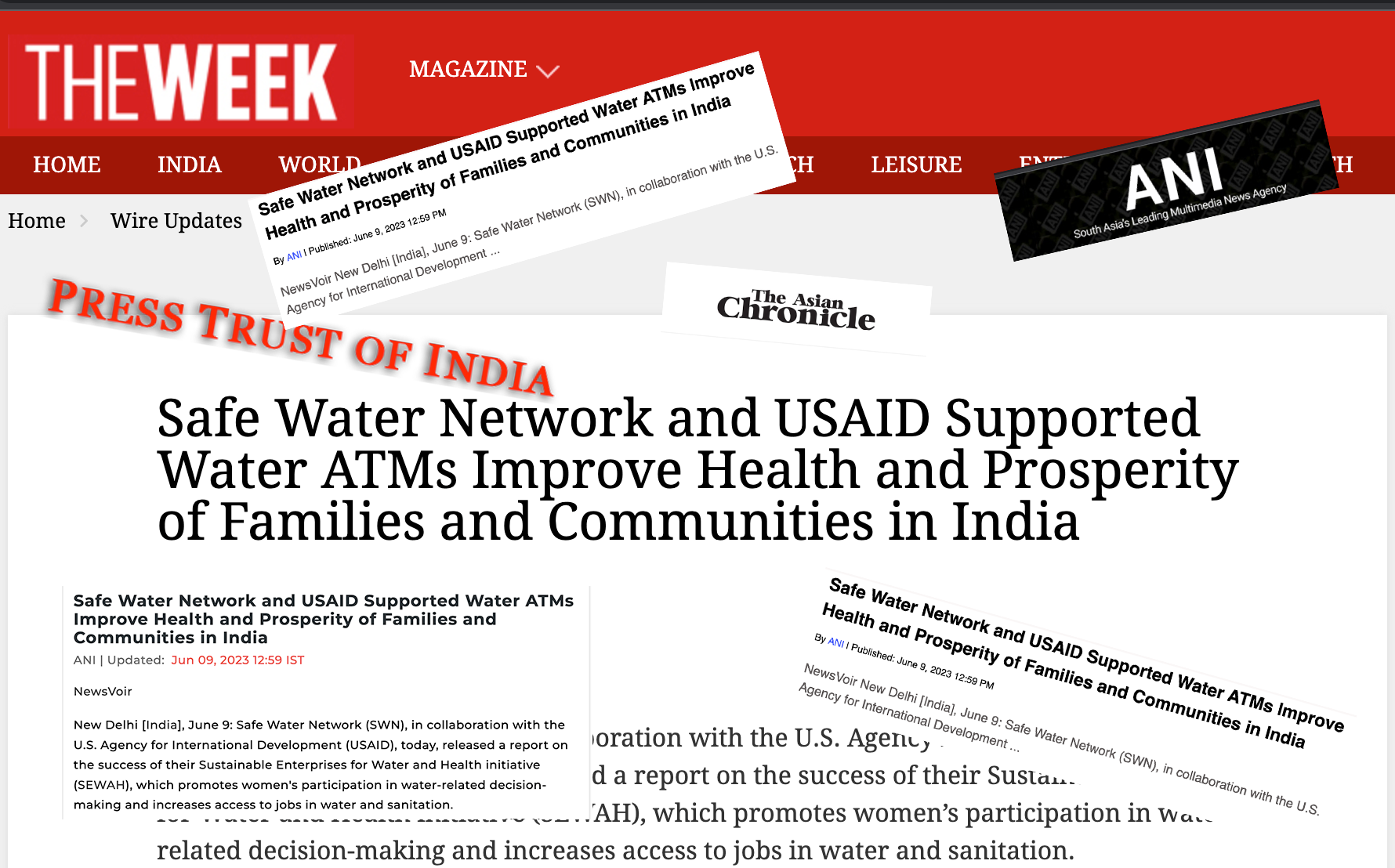
The report “Rethinking Gender Equality Through the Lens of Economic Empowerment in Water,” can be downloaded here.
This report is an important aspect of our on-going effort to share our findings in the field, working with other like-minded organizations and funders. Safe Water Network’s Knowledge Hub contains a plethora of reports, sector reviews, and field insights covering a variety of water sector subjects including operations, financial sustainability, health impacts, and gender.
For more information, contact one of our offices in Ghana, India, or New York.
